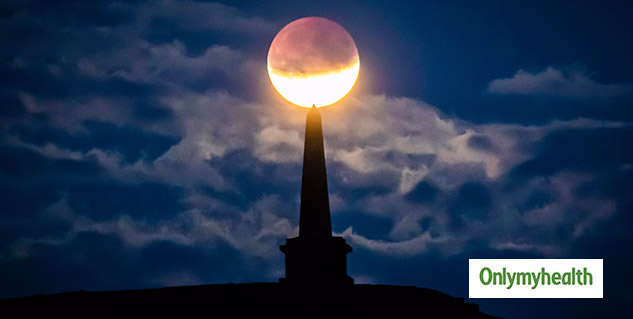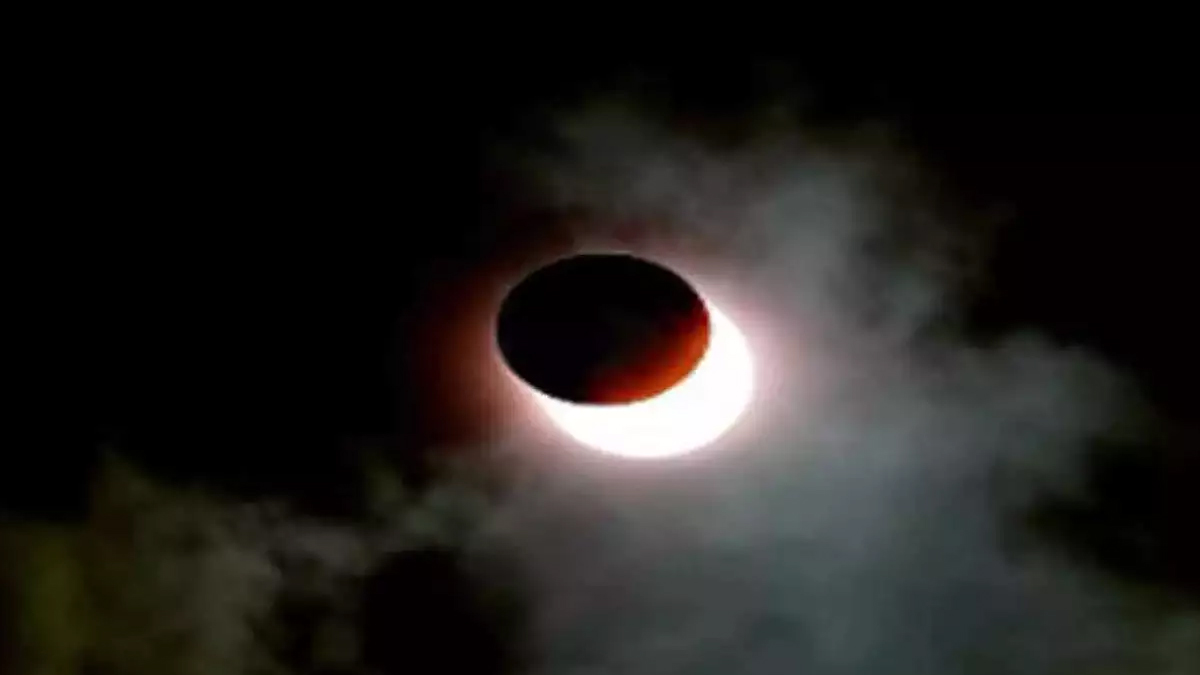
As celestial events captivate our attention, the upcoming solar eclipse of 2024 is a spectacle not to be missed. However, amidst the awe-inspiring sight of the moon passing before the sun, it's crucial to remember the potential risks it poses to our health, particularly to our skin. While witnessing this rare event, it's essential to take proactive measures to protect our skin from harmful solar radiation.
Table of Content:-
Tips to Safeguard Your Skin During Solar Eclipse
Here are some ways to safeguard your skin during the solar eclipse of 2024:
1. Avoid Direct Sun Exposure
During a solar eclipse, the sun's rays remain potent and can cause damage to unprotected skin. To minimise the risk, avoid direct sun exposure as much as possible. If you plan to observe the eclipse, utilise proper protective gear like solar eclipse glasses or handheld viewers to shield your eyes from harmful ultraviolet (UV) rays.
2. Apply Sunscreen
Even during an eclipse, UV radiation can penetrate the Earth's atmosphere and reach your skin. Apply a broad-spectrum sunscreen with a high Sun Protection Factor (SPF) of at least 30 to exposed areas of your skin. Reapply sunscreen every two hours, especially if you're outdoors for an extended period.
3. Wear Protective Clothing
Opt for clothing that provides adequate coverage to shield your skin from the sun's rays. Wear long-sleeved shirts, pants, and wide-brimmed hats to minimise direct exposure. Darker colours and tightly woven fabrics offer better protection against UV radiation.

Also Read: Debunking the Myth: Are All Processed Foods Bad for You? Expert Decodes
4. Seek Shade
Whenever possible, seek shade to reduce your skin's exposure to direct sunlight. If you're attending an outdoor eclipse viewing event, bring along a portable umbrella or set up a canopy to create a shaded area. Remember that UV rays can still penetrate through clouds, so seek shelter under a solid structure if available.
5. Stay Hydrated
Hydration is essential for maintaining healthy skin, especially during prolonged sun exposure. Drink plenty of water throughout the day to prevent dehydration and help your skin stay moisturised. Avoid excessive consumption of alcoholic or caffeinated beverages, as they can contribute to dehydration.

6. Protect Your Lips
Don't forget to protect your lips from sun damage by applying a lip balm or sunscreen with SPF. Lips are often overlooked but are susceptible to sunburn and long-term UV damage. Choose a lip product that provides broad-spectrum protection to keep your lips hydrated and shielded from the sun.
Also Read: Best Homemade Strawberry Face Pack for Tan Removal, Benefits and How To Prepare
7. Limit Outdoor Activities
If possible, consider limiting outdoor activities. Plan your eclipse viewing experience accordingly, scheduling outdoor activities before or after the eclipse hours to minimise sun exposure.
8. Attend Indoor Viewing Events
Many communities organise indoor viewing events for solar eclipses, providing a safe environment to observe the phenomenon without risking sun damage. Check local listings for indoor eclipse viewing parties hosted by libraries, museums, or planetariums in your area.
9. Monitor Skin Changes
Pay attention to any changes in your skin during and after the solar eclipse. If you notice sunburn, redness, or irritation, take immediate steps to soothe your skin and prevent further damage. Apply aloe vera gel or a soothing moisturiser to alleviate discomfort and promote healing.
Consult a Dermatologist: If you experience severe sunburn or prolonged skin damage following the solar eclipse, seek medical attention from a dermatologist. They can assess your skin condition, provide treatment recommendations, and offer advice on how to prevent future sun-related issues.
Bottomline
While the solar eclipse of 2024 promises to be a breathtaking spectacle, it's essential to prioritise your skin's health and safety during this event. By following these tips and taking proactive measures to protect your skin from harmful UV radiation, you can enjoy the eclipse experience while minimising the risk of sun damage. Remember, your skin deserves the same attention and care as your eyes when observing celestial phenomena.
Also watch this video
How we keep this article up to date:
We work with experts and keep a close eye on the latest in health and wellness. Whenever there is a new research or helpful information, we update our articles with accurate and useful advice.
Current Version